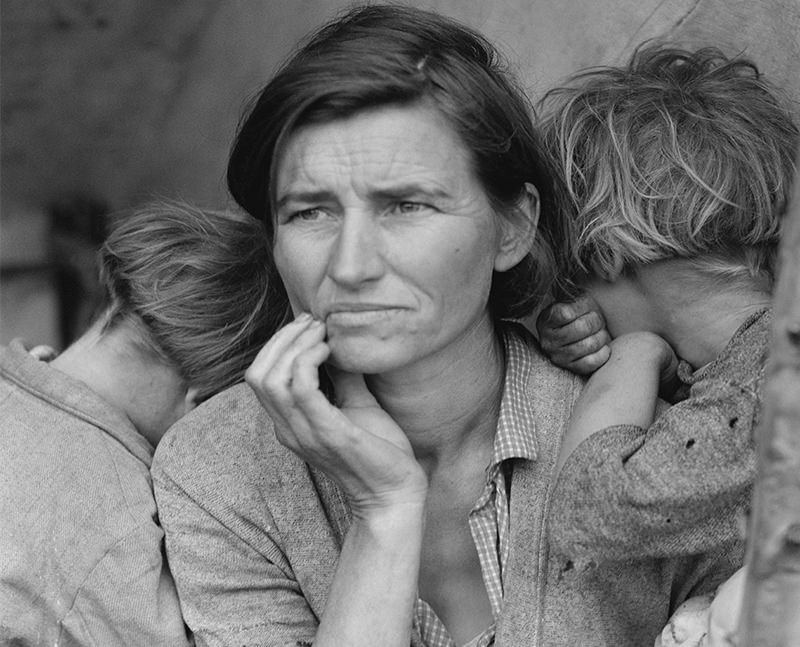Skip to content

Here’s one I’d never thought about. To wit, there’s poor, but there’s also poor.
Let me explain. Over on Nation of Change’s website there is an interesting article entitled, Yes, deniers, millions of Americans are among the poorest people in the world by Paul Buchheit. In the piece, Buchheit looks at the increasingly large number of people in the United States who are desperately poor. Not just suffering from poverty, not just needing a little help…but desperately poor. They suffer, in other words, the kind of poverty that is genuinely life endangering.
But here’s the thing I’d never considered. He notes that many Americans, particularly wealthy ones, flat-out refuse that real poverty exists in America. They look at the poor and say, “they’re not really poor. They have, after all, consumer goods. They may have an apartment or even a house.” Most notoriously, the Conservative think tank, the Heritage Foundation, once claimed that the American poor aren’t really poor because they’ve got access to things like refrigerators.
But, replies Buchheit, the possession of a refrigerator isn’t much of an advantage if there isn’t any food in it—which is very often the case. He notes, “Our poorest citizens may not be living in a farming village where they eat millet soup and walk a mile for water. But they have to deal with homelessness, alcoholism, mental health disease, opioid addiction, stress-inducing indebtedness and inequality, and pollution levels that are the highest in the developed world.”
The problem is that our poor don’t look poor. Or, rather, they don’t look poor in the way that we’ve been taught poverty looks. The poor, we’ve been told, live in third world countries, work on subsistence farms, have mud on their hands, and aren’t, well, white. They are famine-stricken Ethiopians with skeletal faces and distended bellies. Or, they are Latin Americans in arid landscapes were nothing grows but a few beans and some ragged corn. Or, they’re in South Asia, and their “untouchables,” that is, Dalits, and they live in ghastly conditions while being officially regarded as unclean.
But they do not look like Americans.
So, we assume that everyone here is more or less middle class, even the poorest of us, even those who suffer from hopelessness and horror, starvation and despair…
Yet, in fact, our poor are poor. Notes Buchheit, recent Credit Suisse reports reveal that Americans now make up between 4 to 10 percent of the world’s poorest. And it doesn’t matter whether they look poor are not. They are still almost as disadvantaged, and as trapped, and as desperate as Third World peoples. Increasingly, they are as much in trouble, and in need of our aid, as any Ethiopian or Dalit.
As I say, this was all new to me. I had never thought of it. I had known that there were poor…even terribly poor …people in America, but I had never considered that they were, in some ways, as bad off as Third World peoples.
But, clearly, Buchheit has a point here. He’s right. With each passing year, the lower end of our economic spectrum resembles the worst that the rest of the world has to offer.
And the horror is that we can’t admit that. We can’t admit it, because it would require us to admit, too, that our system is not working, that our nation is not perfect, and that “economic liberty” does not necessarily serve the interests of the nation as a whole. That, indeed, economic liberty, like any other sort, needs to be moderated… not eliminated, but moderated, on precisely the same logic as my freedom of action, and my right to pursue happiness, do not include the murder of those who offend me, nor the enslavement of those whose unpaid labor would benefit me.
And I wonder can we admit that? Or, if we can…
Would the Trumpian Right, the plutocratic right, the pseudo-libertarians whose liberty always seems to come at the expense of those less fortunate than themselves…
Permit us to speak that fact aloud?
Or would they force us to hold our tongues? Just as they will permit no one to see our poor, our sick, our disadvantaged, our hungry, our outcastes…our invisible neighbors…
Who shall, someday, somehow, confront them…
And ask where were your eyes? Where was your compassion?
And what do you expect, now…
In return?
Scroll To Top

